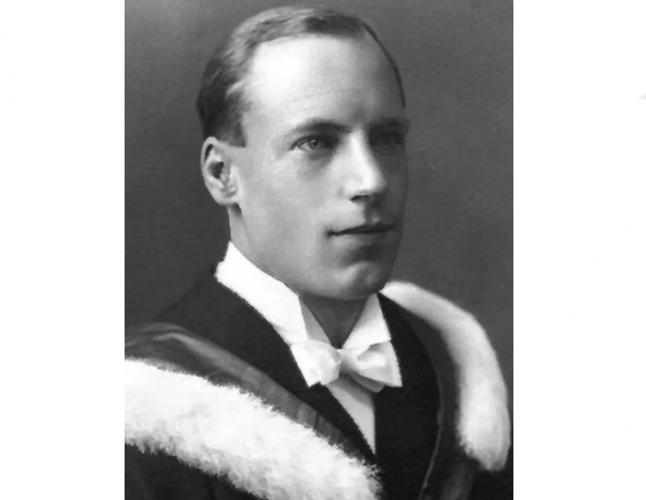On Tuesday, China’s state news outlet Xinhua News Agency published an article about the renowned Scottish missionary to China, Eric Henry Liddell, who dedicated his life to the country after winning an Olympic gold medal.
Titled “Feature: How a 1924 Paris Olympic Champion Dedicated His Life to China,” the Xinhua article writes, “In fewer than two weeks, the 2024 Paris Olympic Games will officially open, marking the return of the Games to Paris after a century.”
Looking back at the 1924 Paris Olympics, the article notes many groundbreaking accomplishments, adding, “However, for China, the biggest star at the 1924 Paris Olympics might be a British Olympic champion. Not because of his world-record winning performance in the 400 meters, nor the Oscar-winning film ‘Chariots of Fire’, which was adapted from his life story, but because he was born in, died in and dedicated his life to China.”
The article continues, stating that Liddell was born in Tianjin, China, in 1902, to Scottish parents. “He showed good sporting talent at a young age... Liddell was one of the strongest contenders for the gold medal in the 100 meters at the 1924 Paris Olympics.”
“However, the Olympic schedule published in advance showed that the 100m and 4x100m races were to be held on a Sunday. A committed Christian, he chose not to run these two races and signed up instead for the 200m and 400m races, which were not his favored events and which he had only a few months to prepare for. However, Liddell not only took the bronze medal in the 200m, but broke the world record in the 400m with a time of 47.06 seconds to win gold.”
At the peak of his athletic career at 23, he returned to his birthplace of Tianjin and settled there.
The article comments, “Until today, many people are still puzzled by Liddell's choice. Zhao Yan, a staffer at the Tianjin Sports Museum, suggested that Liddell returned to Tianjin for two reasons: firstly, to be nearer to his family, as his parents had always been in Tianjin, and secondly, his belief that his future would be more meaningful in China. As he once said, 'From birth to death, everyone seems to be on the same track, but what each person does is different, hence the meaning of life is also different.'"
The article mentions that in Tianjin, Liddell was also known as the “Father of the Minyuan,” the most famous stadium in Tianjin at the time. “When it was renovated in 1925, Liddell, referring to the design drawings of Stamford Bridge stadium in the United Kingdom, made a series of suggestions on the track structure, lighting equipment and grandstand levels, making the renovated stadium one of the leading facilities in Asia at that time.”
In 1943, Liddell was arrested by Japanese forces and imprisoned in the Weihsien Internment Camp (the Courtyard of the Happy Way). “However, the long-term imprisonment and malnutrition severely damaged his health. In early 1945, Liddell passed away due to a brain tumor at the age of 43.”
In 1988, a monument to Liddell’s grave was put up in Weifang. The monument is made of granite from Mull Island in his native Scotland and inscribed with words in both Chinese and English. The front reads: "They will soar on wings like eagles; they will run and not grow weary, they will walk and not be faint."
The article concludes, “We refer to Eric Liddell as a Scottish hero and a Scottish icon. He was also a good friend of the Chinese people. Not only was he a great sportsman with outstanding athletic achievements, his compassion, integrity and passion are also the values that we can hold dear today. That's why we still remember him today," said Catriona Radcliffe, head of the Scottish government office in China.
“Liu Jianbin, director of the Tianjin Sports Museum, said that regardless of how Liddell's identity and environment changed, he remained consistent at heart, practicing his simple beliefs and pursuing the meaning of life, and that the spirit and strength transcend time and space inspiring people.”
- Translated by Charlie Li











